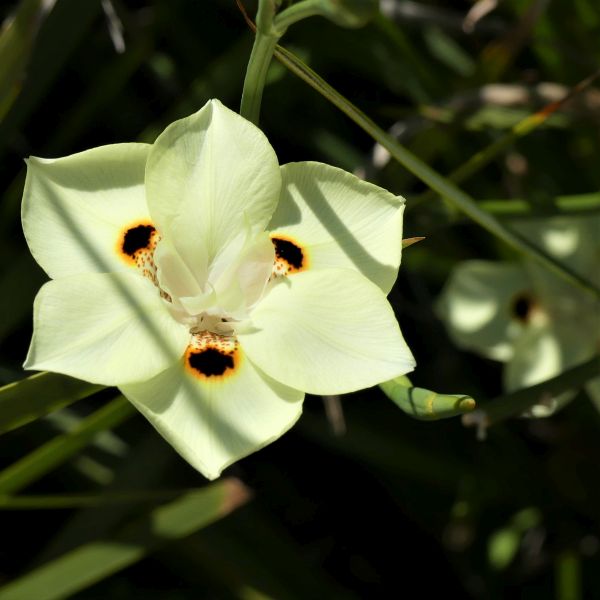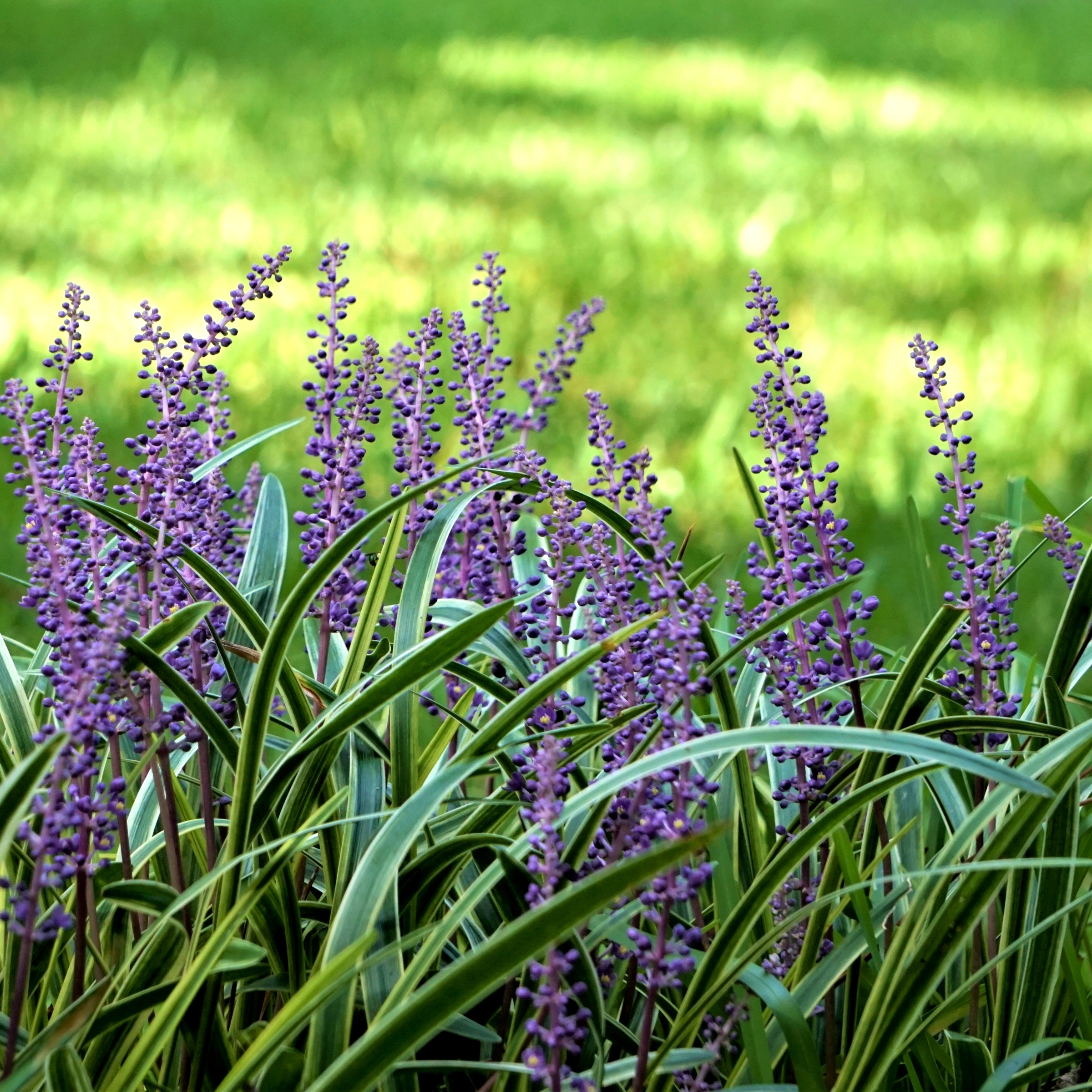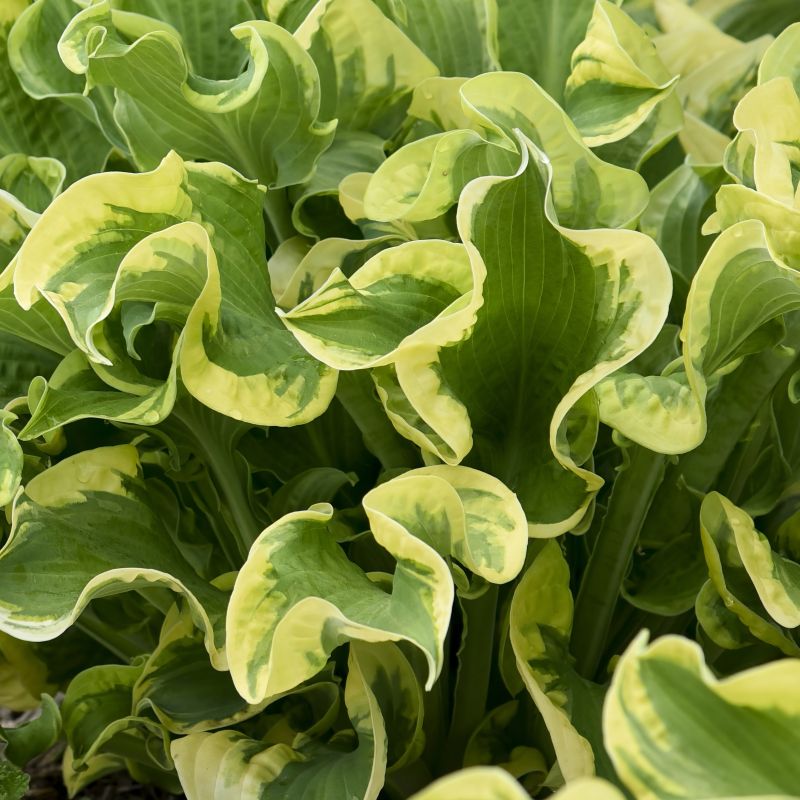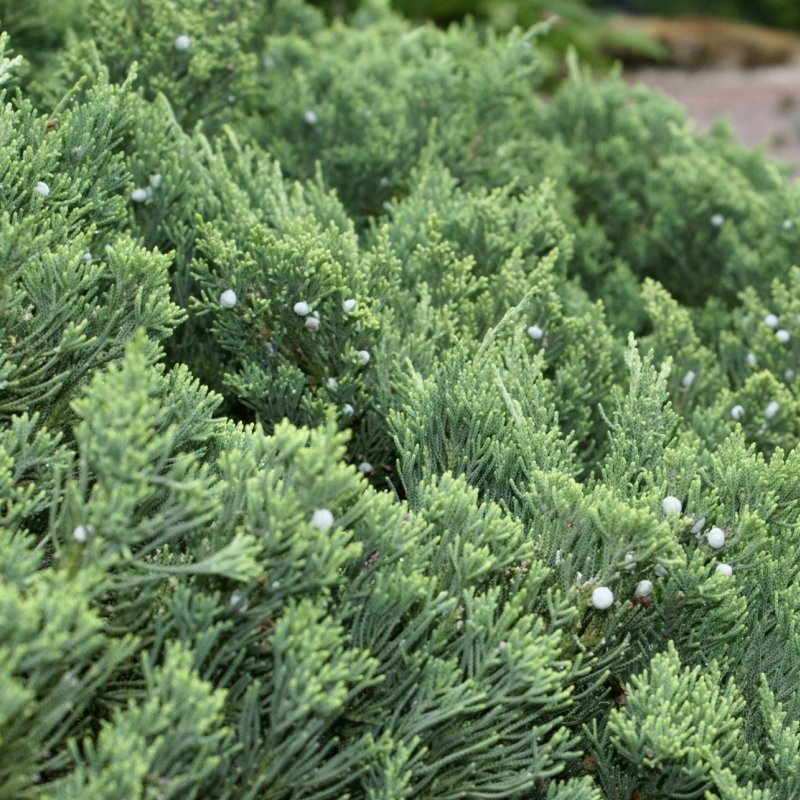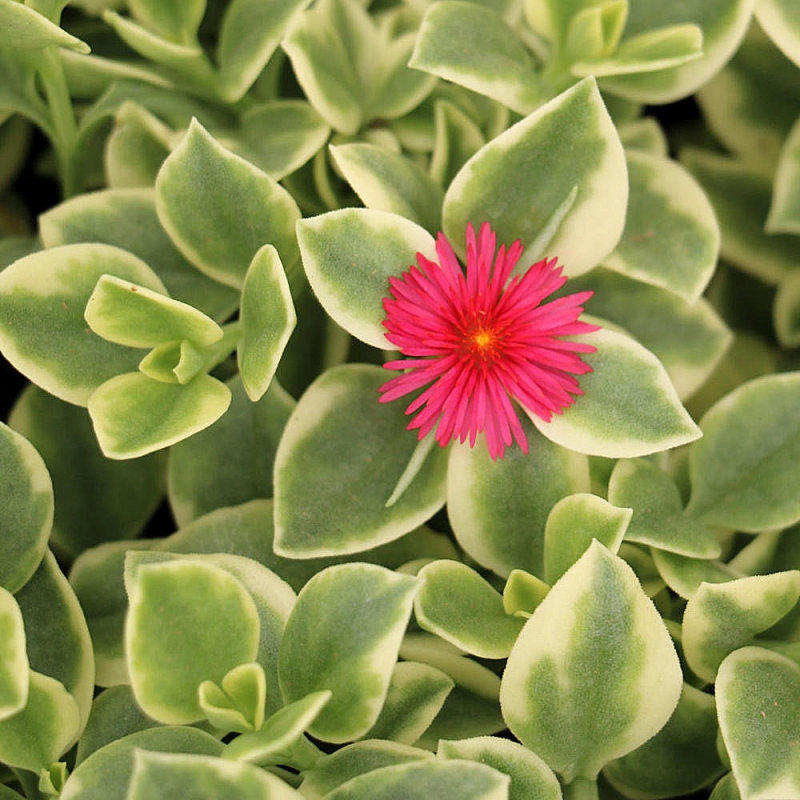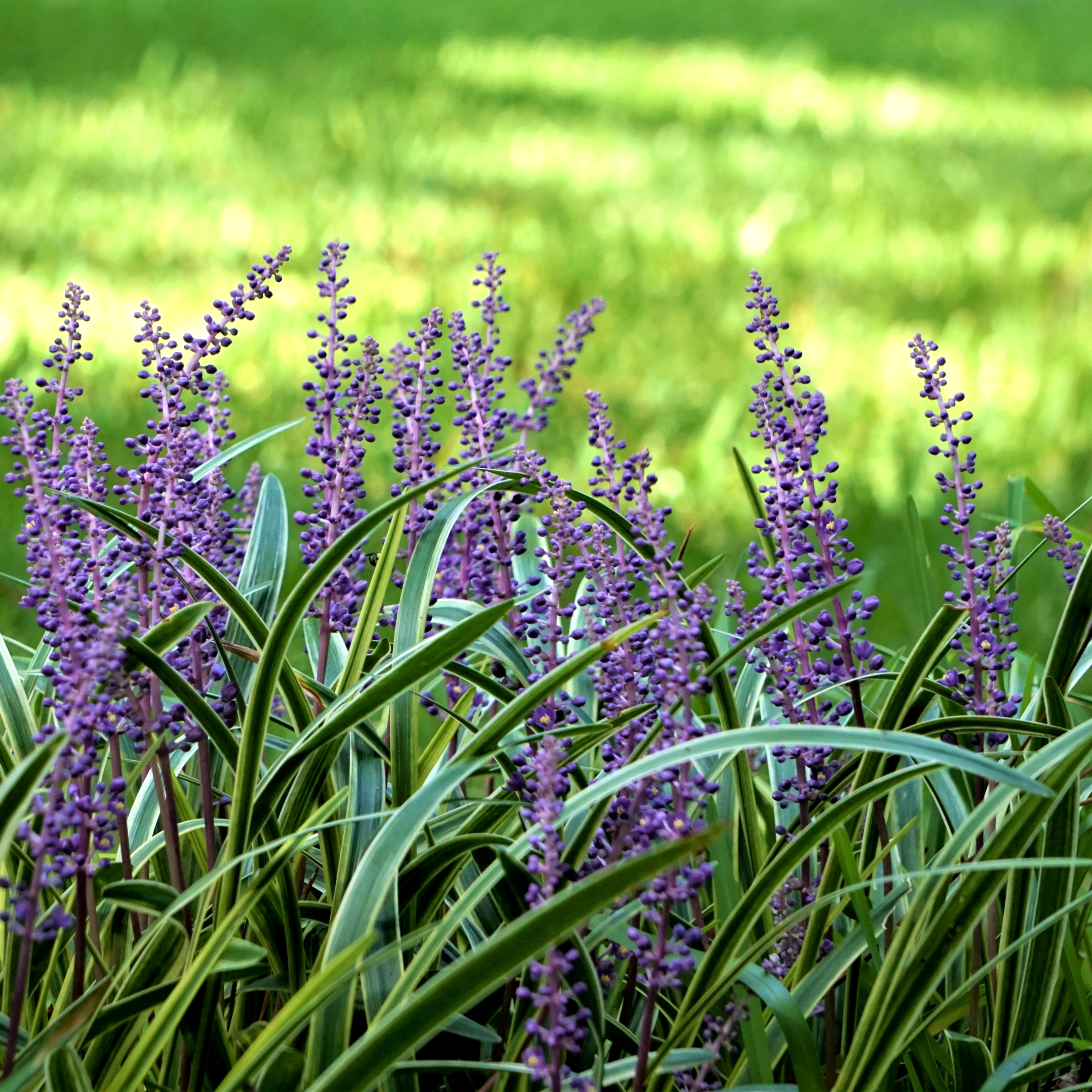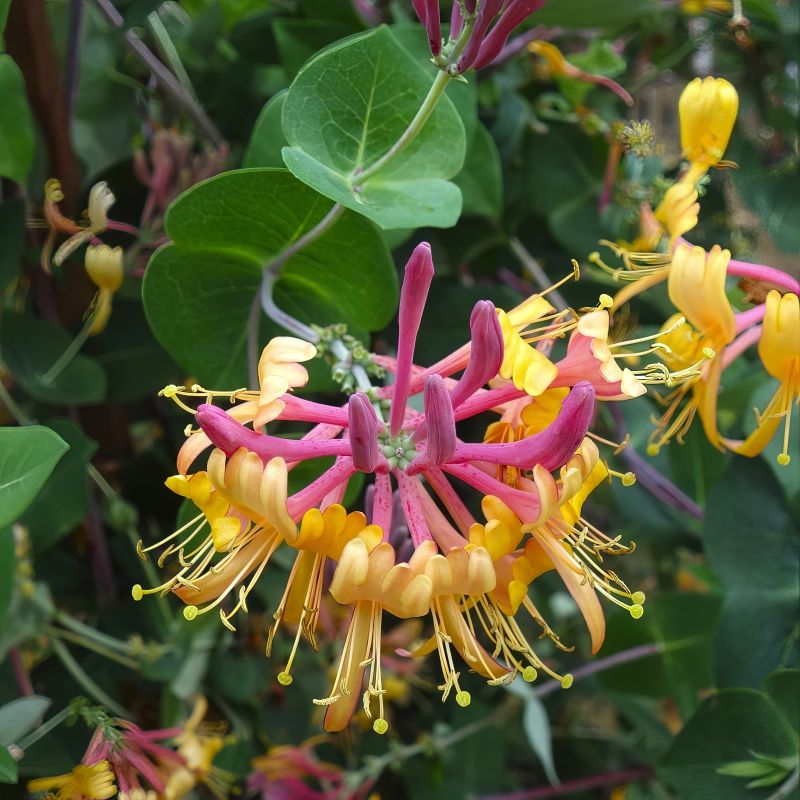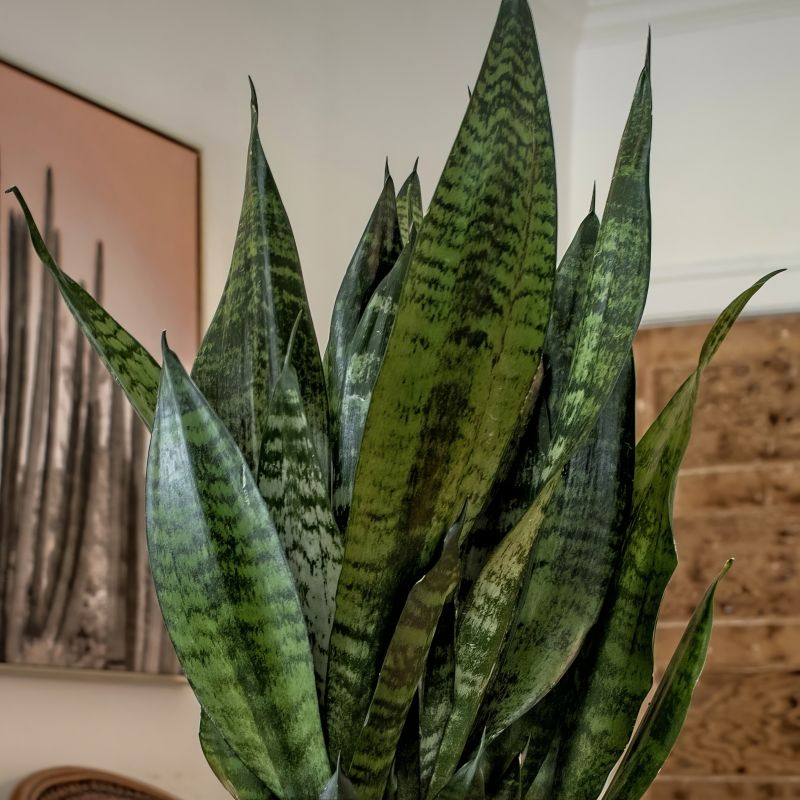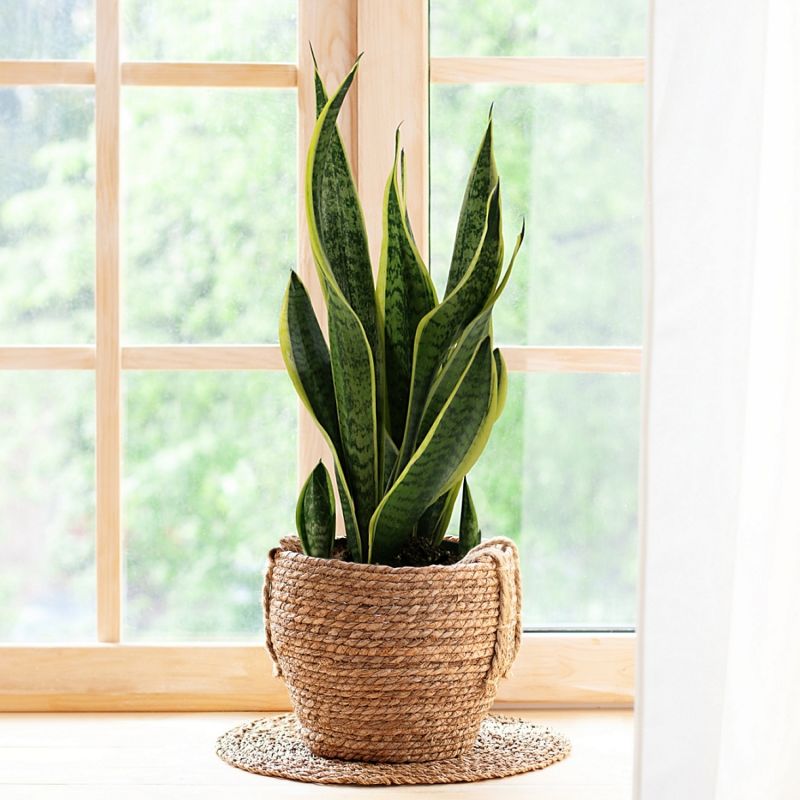

Fortnight Lily
Dietes bicolor
7 reviews


Fortnight Lily
Dietes bicolor
7 reviews
- Beautiful, fragrant flowers that attract butterflies and hummingbirds
- Drought-tolerant and low-maintenance plant
- Blooms continuously throughout the summer months
- Ships to 43215 in 7-10 Days
- Free Shipping Over $150
- Plant Arrival Guarantee
- In Stock
- Free Plant Consult
$200
$130.00
$186.00
30% Off
3.5 Gallon
We are sorry, product is currently out of stock due to seasonal availability. Please check the "Related plants available in your area" section below
Why Fortnight Lily?
The Fortnight Lily (Dietes bicolor) is known for its stunning blooms that last for about two weeks, hence the name "Fortnight." This evergreen perennial produces upright, sword-shaped leaves and delicate, white flowers with yellow and purple markings that resemble orchids. It's a hardy and low-maintenance plant that can thrive in a wide range of growing conditions, making it a popular choice for gardens and landscaping projects.
Related plants available in your area
Sunlight
Fortnight Lily (Dietes bicolor) requires full sun to partial shade, typically needing at least 6 to 8 hours of direct sunlight each day to thrive and produce flowers.
Watering
Fortnight Lily plants have moderate watering requirements. They prefer well-drained soil and should be watered regularly, ensuring the soil stays slightly moist but not overly saturated. Overwatering should be avoided to prevent root rot.
Fertilizing
The fertilizer requirement for Fortnight Lily is moderate. It benefits from a balanced slow-release fertilizer, applied in early spring and again in mid-summer. Avoid over-fertilizing as it can lead to excessive foliage growth and reduced flower production
Fortnight Lily, also known as African iris, butterfly iris, Wood iris, and scientifically Dietes iridoids, is a species of plant in the Iridaceae family, native to Eastern and Southern Africa. The evergreen perennial is most notable for its bloom bursts every two weeks during the flowering period, from spring to late summer, giving it its name.
Above the dark green sword-shaped leaves, the flowers rise in resemblance to small Japanese irises, either bright white with yellow margins at the base and a purple center, or off-white with maroon blotches. As beautiful as the attractive flowers are, it's the fan-shaped clumps of the foliage that makes this plant remarkable.
This plant is an evergreen perennial in USDA zones eight through eleven. It can reach up to 2-4 feet tall, perfectly sized for any garden.
Fortnight Lily is also easy to grow and relatively low maintenance. It's best grown in well-drained soil with sufficient soil moisture levels. Be careful not to overdo it as overwatering can lead to root rot.
Loamy or sandy soil is best for this plant. And once established, not even poor soil would bother this plant.
It prefers the partial sun but can tolerate the full sun. While those African fortnight lilies aren't intimated by direct sunlight, the best combination is the morning sun with the light afternoon shade. Pruning to remove the old flower stalks and damaged foliage is recommended.
Once established, the Fortnight Lily can tolerate nearly anything. But with healthy growth, you can expect the best aesthetic results. Fortnight Lily would be a great addition to garden beds with other plants, in mass plantings, or alone as a specimen.
Order yours from Shurbhub right away to get your new Fortnight Lily in perfect shape.
Plant Information:
| Botanical Name: | Dietes bicolor |
| USDA Zones: | 9-11 |
| Water: | Medium |
| Exposure: | Full Sun |
| Soil Needs: | Well drained |
| Mature Height: | 2 - 3 feet |
| Mature Spread: | 2 - 3 feet |



Pollination Info
Pollination Info for Fortnight Lily (Dietes bicolor)
Fortnight Lily, also known as African iris or yellow wild iris, is a popular ornamental plant in gardens and landscapes. It is a perennial herbaceous plant that belongs to the family Iridaceae. The plant has long, narrow leaves and large, showy flowers that bloom profusely throughout the year.
Pollination in Fortnight Lily is primarily done by bees, especially honeybees, bumblebees, and carpenter bees. These bees are attracted to the bright colors and sweet nectar of the flowers. They land on the petals and collect nectar and pollen, while inadvertently transferring pollen from the anthers to the stigma of the flower.
The flowers of Fortnight Lily are hermaphroditic, meaning they contain both male and female reproductive organs. The anthers, which produce pollen, are located at the base of the petals, while the stigma, which receives pollen, is located at the end of the style. The plant can also self-pollinate, but cross-pollination by bees is more efficient and leads to stronger genetic diversity.
Fortnight Lily is not dependent on any one particular species of bee for pollination, making it a resilient and adaptable plant in many environments. However, habitat loss and pesticide use can have negative impacts on bee populations and ultimately affect the pollination and reproduction of Fortnight Lily and other plants in the ecosystem.
FAQ
Frequently Asked Questions about Fortnight Lily (Dietes bicolor)
What is a Fortnight Lily?
The Fortnight Lilly is a highly esteemed ornamental plant species in the Iridaceae family, native to southern and eastern Africa. It gets its name from the fact that its blooms last only two weeks (“fortnight”) in most cases, with new flowers blooming to replace those that have faded.
Is Fortnight Lily suitable for all climates?
Fortnight lilies thrive best in tropical and subtropical areas, but they can also grow in arid, Mediterranean-like climates. They can tolerate some cold and drought, but they do well in dappled shade or light full-sun environments such as woodland openings or on the margins of ponds or streams. Ideal planting sites should provide well-drained soil for the best possible growth.
How do I plant Fortnight Lily?
The planting process for Fortnight lilies is quite simple. You can plant them using their rhizomes, and the holes for planting should be as deep as the rhizomes themselves. Gently pack soil around the plant to keep it steady and then water well. The plant typically takes 1-3 weeks to establish itself and show signs of growth.
How often do I need to water Fortnight Lily?
The Fortnight lily is a hardy, drought-tolerant plant that needs to be watered sparingly but regularly, particularly during extended periods of dry weather. It is important to note that overwatering can cause rotting or can lead to other soil-borne diseases, so it is advisable to let the soil dry out completely between waterings to avoid the accumulation of moisture, which could prove harmful to the Fortnight lily’s growth.
What fertilizers should I use on Fortnight Lily?
Fortnight lilies are marginally favorable to the use of commercial fertilizers, as some may burn the foliage or compromise the growth of the plant. However, if you need to fertilize, do so sparingly, and use phosphorus-rich fertilizers such as bone meal. A small amount of organic mulch can also provide your plant with the necessary nutrients it needs to thrive.
How do I propagate Fortnight Lily?
Propagating Fortnight Lily is easy and straightforward. You can do this through rhizome division, which typically takes place during the plant's dormant season. You can easily identify the rhizomes protruding from the soil and use a garden fork to separate each from the plant’s main clump. Pot up the divided rhizomes in well-draining soil and water them occasionally until they have established themselves, then transplant them as needed.
Can Fortnight Lily thrive indoors?
Fortnight lily is a plant that thrives best outdoors or in semi-outdoor living spaces, such as screened porches, patios, balconies, or areas with filtered light. While it is possible to grow them indoors, they depend on considerable care, and their harsh, sword-like leaves are sharp and can cause injury. They also need plenty of light to grow and perform well, making it challenging to meet their needs indoors.
Is Fortnight Lily a poisonous plant?
No, Fortnight lilies are not poisonous and are regarded as safe around both pets and small children. However, their leaves and flowers are somewhat tough and could cut or poke, so handle them with care.
Planting & Care
Planting Fortnight Lily
1. Choose a location with well-drained soil and partial to full sun exposure.
2. Dig a hole twice as wide as the root ball and deep enough so the top of the root ball is level with the soil surface.
3. Mix compost or other organic matter into the soil before planting.
4. Place the plant in the hole and backfill with soil, gently pressing down to eliminate air pockets.
5. Water thoroughly.
Caring for Fortnight Lily
1. Water regularly during the first growing season to establish a deep, extensive root system. Afterward, fortnight lily may require little to no additional watering.
2. Apply a balanced fertilizer once a year in early spring.
3. Remove spent flowers and seed pods to extend blooming and prevent unwanted spread.
4. Divide crowded clumps every few years in early spring to maintain vigor.
5. Monitor for pests like snails and slugs and treat as needed.
Check Out These Verified Customer Reviews:
Customer Reviews
4.7 out of 5 based on 7 reviews
Thank you! Your review has been submitted.
Easy website navigation.
Fast shipping, arrived on time.
Beautiful and vibrant flowers.
Item has been added to your cart.



